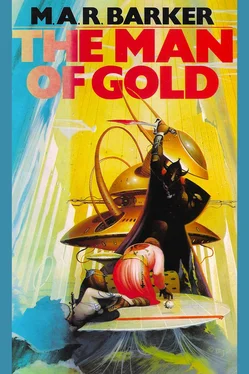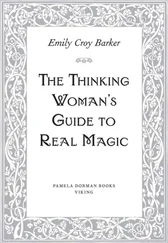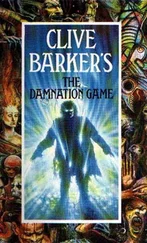M. Barker - The Man of Gold
Здесь есть возможность читать онлайн «M. Barker - The Man of Gold» весь текст электронной книги совершенно бесплатно (целиком полную версию без сокращений). В некоторых случаях можно слушать аудио, скачать через торрент в формате fb2 и присутствует краткое содержание. Жанр: Фэнтези, на английском языке. Описание произведения, (предисловие) а так же отзывы посетителей доступны на портале библиотеки ЛибКат.
- Название:The Man of Gold
- Автор:
- Жанр:
- Год:неизвестен
- ISBN:нет данных
- Рейтинг книги:3 / 5. Голосов: 1
-
Избранное:Добавить в избранное
- Отзывы:
-
Ваша оценка:
- 60
- 1
- 2
- 3
- 4
- 5
The Man of Gold: краткое содержание, описание и аннотация
Предлагаем к чтению аннотацию, описание, краткое содержание или предисловие (зависит от того, что написал сам автор книги «The Man of Gold»). Если вы не нашли необходимую информацию о книге — напишите в комментариях, мы постараемся отыскать её.
The Man of Gold — читать онлайн бесплатно полную книгу (весь текст) целиком
Ниже представлен текст книги, разбитый по страницам. Система сохранения места последней прочитанной страницы, позволяет с удобством читать онлайн бесплатно книгу «The Man of Gold», без необходимости каждый раз заново искать на чём Вы остановились. Поставьте закладку, и сможете в любой момент перейти на страницу, на которой закончили чтение.
Интервал:
Закладка:
On the last day of his stay in Hauma the physician priest Nusetl hiZayavu sought him out.
“Priest Harsan, you resume your journey tomorrow?”
“I do. My companions have suffered enough delay awaiting me.”
“It would be a shame to their clans if they did not.” The priest bobbed his long, shaven head. “Before your arrival, one came and left this for you with the guard at our gates.” Gravely he extracted a rolled tube of parchment from within the folds of his tunic.
Wondering, Harsan unrolled it and saw two lines of vertical glyphs: the prickly, sword-edged curliques of ancient N’liissa! Each was printed in a careful, amateurish hand, as though by one who knew little of the language. Harsan recognised the text as a couplet from Tyelqu Dyaq’s “Song of the Sky-Singers of Nakome.” It read:
‘One has come, O Lord, to grasp thy hand,
From a foreign land, from the greater dark; more I know not.’
Harsan studied the parchment in bewilderment. Was the glyph for “hand” not a little larger and bolder than the rest? He turned the scroll over. There was no signature, but on the back he saw a stylised sketch of a long-beaked, plume-tailed bird. He puzzled for a moment. Then he knew.
The bird was the literal meaning of the archaic Tsolyani word Kurrune.
He quite startled the physician-priest by demanding to see his bedroll and other possessions at once. Nusetl hiZayavu produced these from a chest near his sleeping mat, and Harsan tore the roll open. Zaren’s farseeing device was there, as were his notes and the Llyani grammar. And, yes, there were the two leaves with his copies of the glyphs upon Kurrune’s map symbol and the waxen hand.
But these last Harsan had left folded. Now they were rolled, like a scroll.
Chapter Eight
The Temple of Eternal Knowing swallowed Harsan up as a minnow is engulfed by the Akho, “the Embracer of Ships.” The tall bronze-barred gates swung to behind him, and he found himself once more in a world like that he had left behind in the Monastery of the Sapient Eye. Within the blue basalt walls, three man-heights high, one first encountered a stone causeway; on both sides of this lay a veritable maze of geometrically perfect, formal gardens overflowing with the grey and green Tetel — flowers sacred to Lord Thumis. To the left, a ramp ran off towards the dim pillared halls and porticoes of the temple schools and colleges, and to the right, another, broader paved avenue led to the colonnades of the administrative offices. Directly ahead, the central causeway carried the worshipper on above the gardens to the temple proper, rising like some slaty leviathan of the forest, a sloping pyramidal platform surmounted by vertiginous crags of plinths and buttresses, with smaller domes, cupolas, and rotundas hugging its steep sides as foothills cling to the skirts of a mountain. Out of sight behind the temple were the dormitories, cookrooms, magazines, storehouses, workshops, and all of the more mundane periphera of sacerdotal life.
Everywhere there were carvings and bas-reliefs and murals and images: Lord Thumis was here in all of his Forty-Seven Greater Aspects, and also in many of his minor forms: teaching, guiding, writing, aiding, admonishing, and contemplating. Bands of black porphyry glyphs, each over a man-height tall, proclaimed the greater glories of the Lord of Wisdom all around the upper flanks of the temple between marching rows of sculptured heroes and demons. Each carven and gilded gable, every blue slate roof, and each pavilion cornice and capital bore the intricate oval medallion of Lord Thumis, Knower of Arts and Sage of the Gods.
Within, throngs of worshippers swirled among the ubiquitous grey robes of the clergy. Here one trod upon black and white marble mosaics, there upon hieroglyphs of glittering pegmatite set into tiles of greyish-blue riband jasper, there again upon tessellations of ashen steatite and pearly chalcedony. The devout moved in hushed groups from one shrine to the next, awed by the rich gold, the high dim altars, and the incense-heavy air. The peasant deposited his Tetel — flower or yellow Dziya — melon upon the altar tray and stood openmouthed to watch the passing of the daily processions and pageants and tableaux. The townsman offered a silver Hlash or a handful of copper Qirgal and had the satisfaction of hearing his presence announced to the God to the singing of a silver gong. Old women knelt in the cool silence of the shrine of Chaisholen the Imparter to plead for the success of an aspiring grandchild in the temple schools; occasionally a noble attired in pleated floor-length kilt, short overcloak of white Giidru-cloth blazoned with clan emblems, headcloth of light gauze bound with strips of iridescent brocade, and sandals of gilded Chlen — hide swept haughtily into one of the inner shrines to be admitted by bowing priests, there to offer a larger sum- and to receive proportionately greater favours from the Lord of Wisdom.
The Temple of Eternal Knowing was a universe of its own, a world cut off both by walls and by function from the humdrum city without. It was a place Harsan understood at once and into which he fitted as a favourite hammer fits the carpenter’s hand.
The last stages of the journey had been accomplished without incident. Harsan had ridden part of the way in the litter of the Lady Eyil (and often her panting bearers had had to carry a double load). When they camped for the last night on Berenanga Plain with the myriad lamps of Bey Sii a twinkling heap of red gems upon the dark silver throat of the great river, the Lady Eyil had wept and kissed him copiously. She swore that she would indeed become an Aridani and send her clan-cousin; Retlan hiVriyen, off to the Halls of Hell to beg for another wife. As they talked, however, grey reality, began to push in along with the cold light of dawn. If she abandoned clan and household how would she live? She had no profession, no training, no calling. She could, of course, cast herself upon the mercy of her temple and become an acolyte, but she seemed to have little patience with the cloistered ways of ritual and prayer. She was too slight to become a warrior, and too unlettered to become a scribe. The flame of this fancy had no more died than she began another: could not Harsan run away with her and the two of them find a new life in some distant land beyond her clan’s certain revenge?
Yet even as they spoke of it both knew that this, too, was only another “rainbow bridge”: all beauty but without substance.
At last the sun thrust up through the spires of the city’s pyramids and palaces. It was clear that nothing could be done. They bid one another a tearful goodbye, and Eyil promised to see him again if her new husband did not keep her mewed up too close. For Harsan’s part, he wavered between the pangs of separation and a surreptitious sense of relief. He told himself that he loved her, romantically and eternally, as the heroes of the epics always loved their paramours; yet mingled in this adoration he could sense little worms of ugly doubt: life with Eyil would be tempestuous at best, dangerous if her husband turned out to be a man of power and clan-pride, and certainly an obstacle to Harsan’s progress within the temple. For these doubts he hated himself.
Thus they parted. Mnesun came to touch Harsan’s hand and wish him good fortune, and the others also bid him farewell, each according to his custom. To these merchants this was just the end of one journey and the start of another.
To Harsan it was a return to reality.
He soon found, however, that he was of little interest to the hierarchy of the Temple of Eternal Knowing. He showed his writ and was questioned by a bored scribe, who copied down his account of the incident upon the Sakbe road-and who also carried off Hele’a’s ‘Eye’ to see what wiser heads might make of it.
Читать дальшеИнтервал:
Закладка:
Похожие книги на «The Man of Gold»
Представляем Вашему вниманию похожие книги на «The Man of Gold» списком для выбора. Мы отобрали схожую по названию и смыслу литературу в надежде предоставить читателям больше вариантов отыскать новые, интересные, ещё непрочитанные произведения.
Обсуждение, отзывы о книге «The Man of Gold» и просто собственные мнения читателей. Оставьте ваши комментарии, напишите, что Вы думаете о произведении, его смысле или главных героях. Укажите что конкретно понравилось, а что нет, и почему Вы так считаете.











